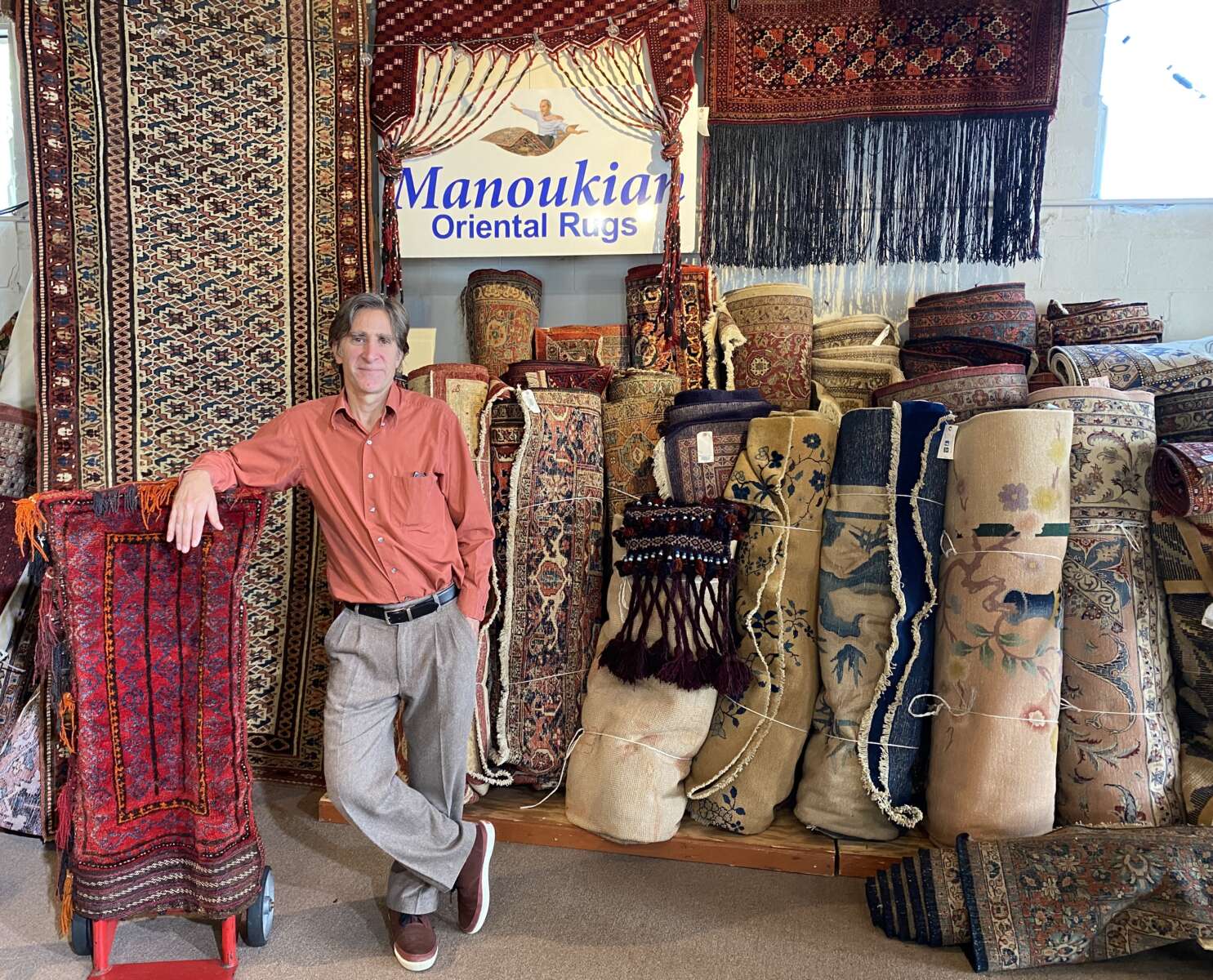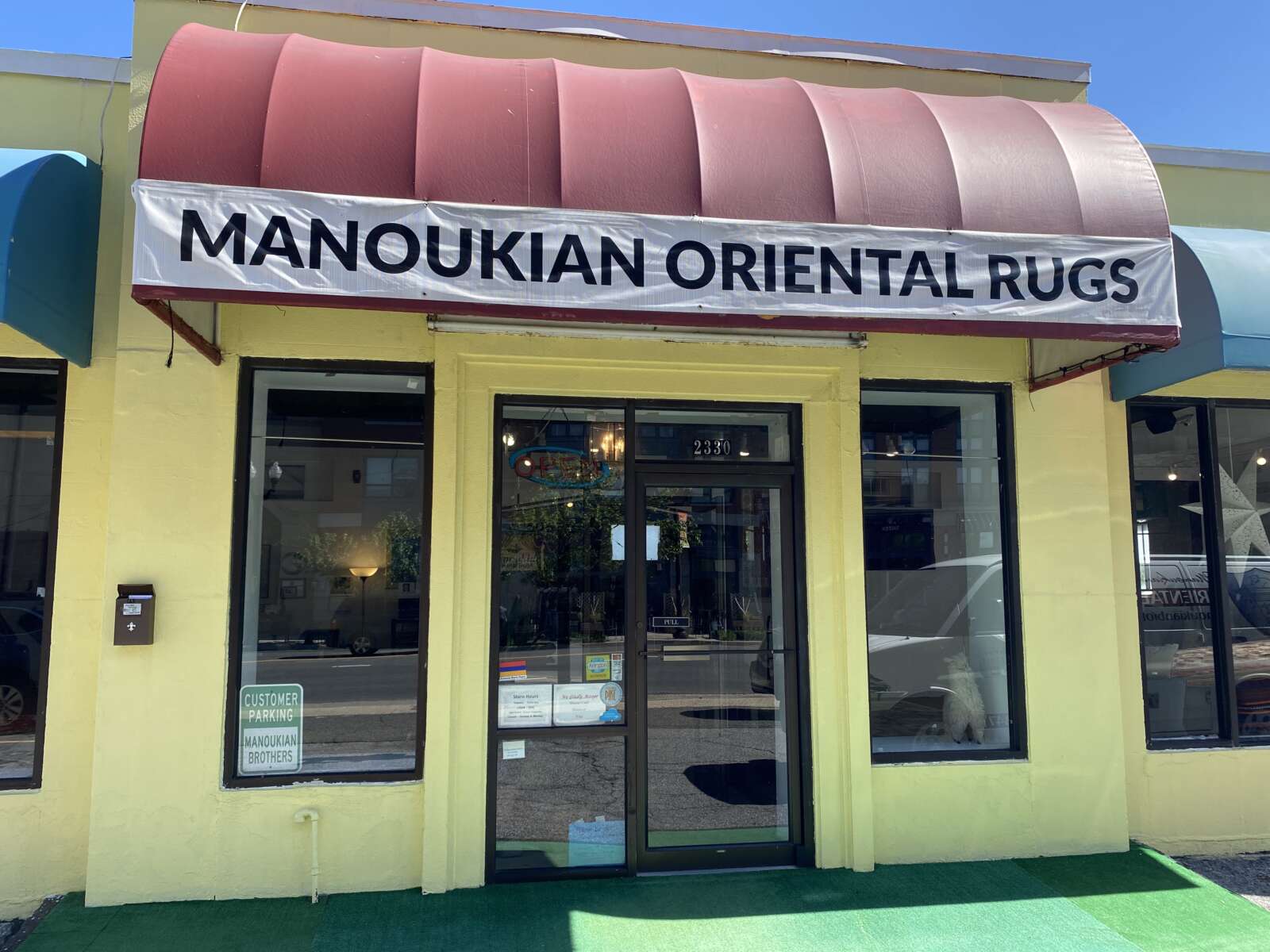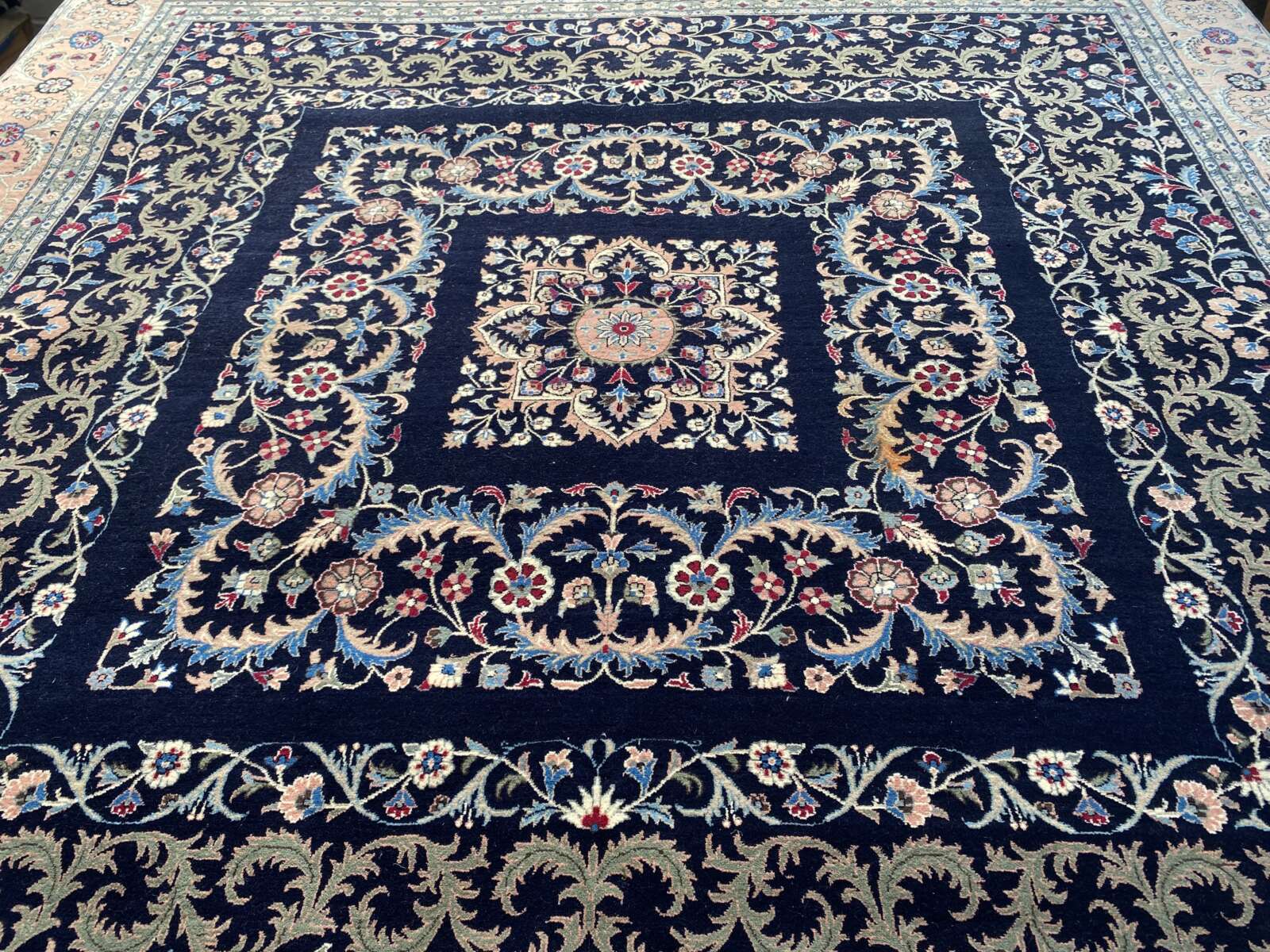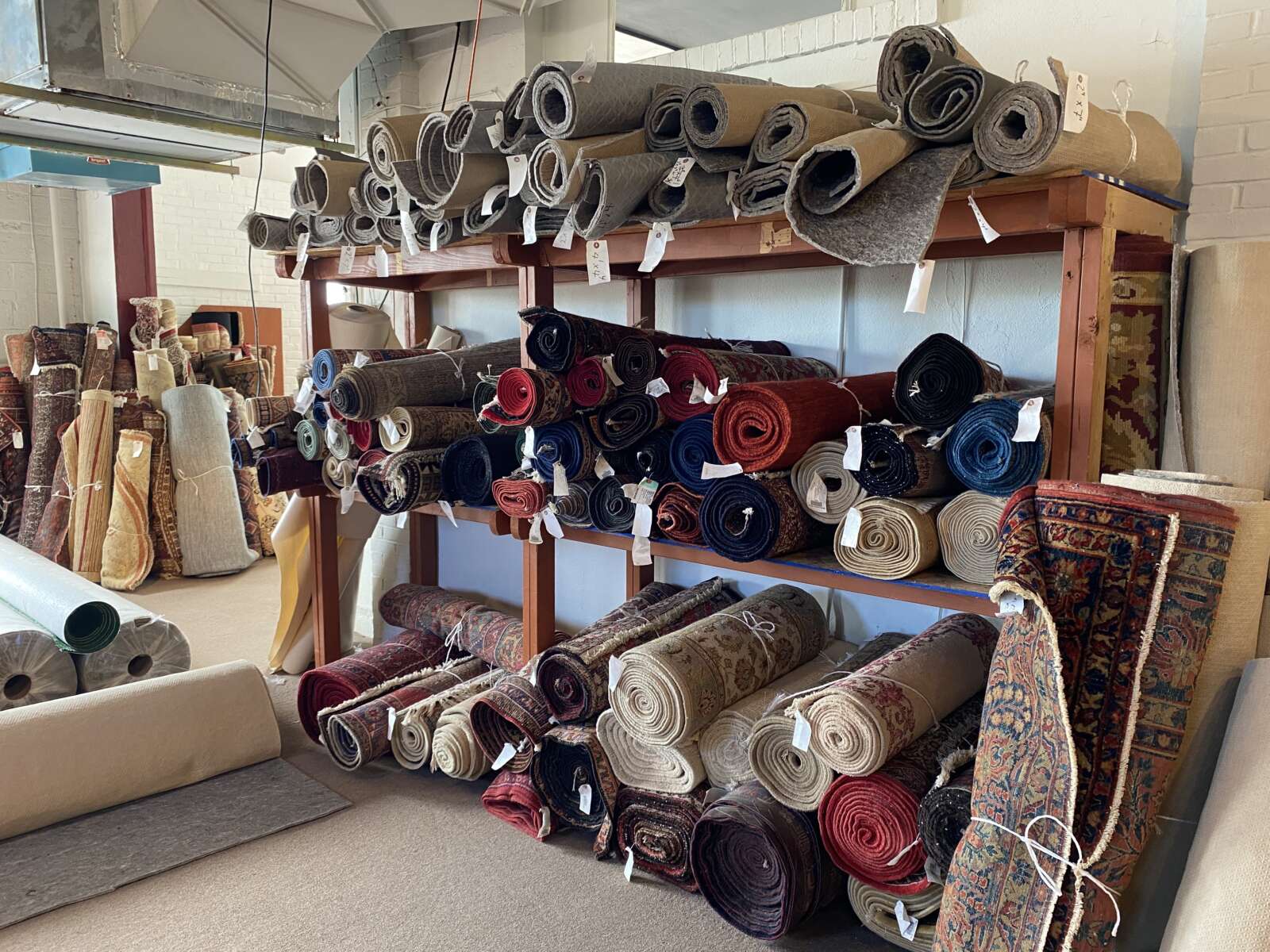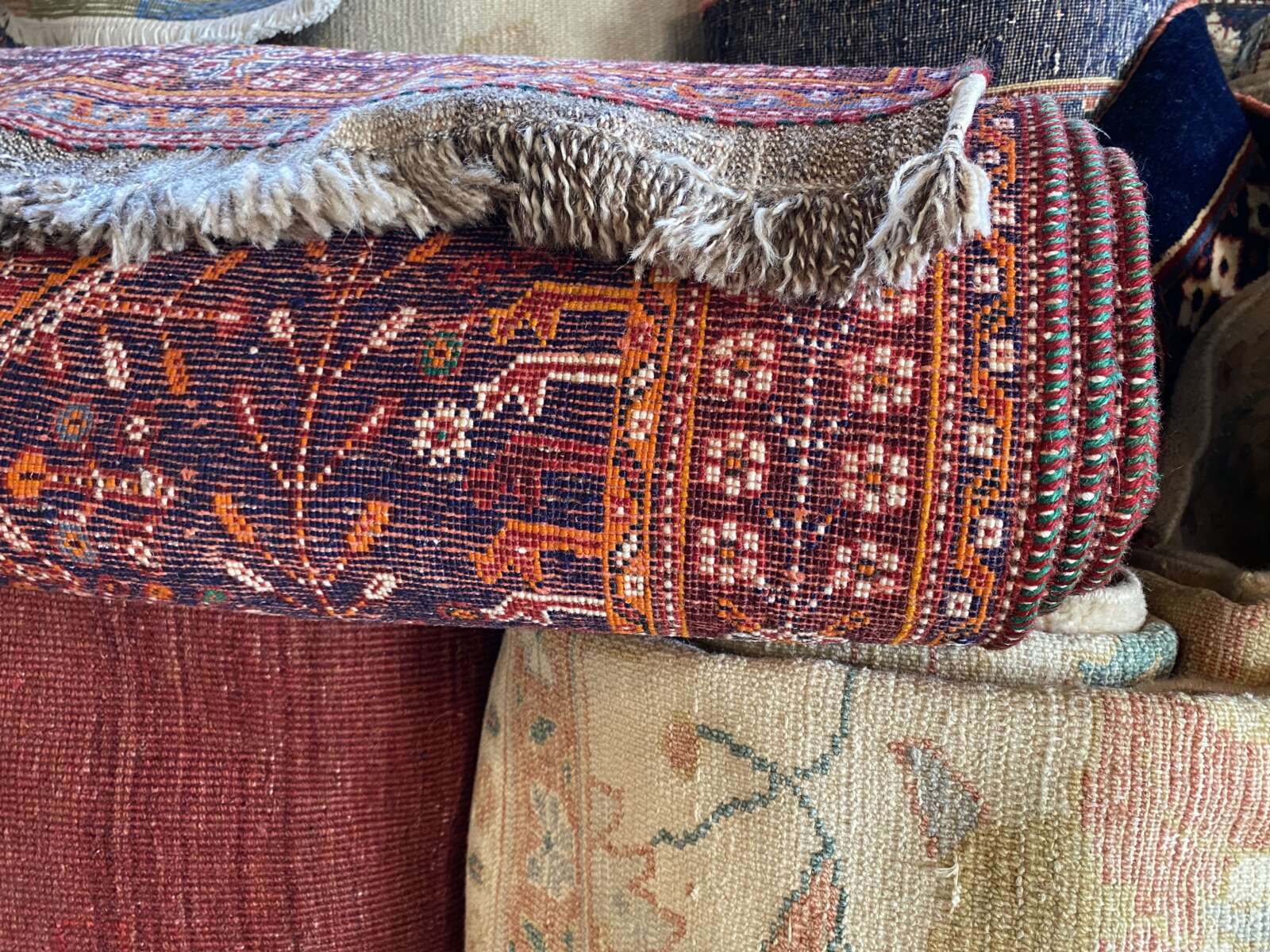It’s been a century since his family first started selling rugs, but Mikael Manoukian is still learning.
To be fair, he actually only got into the family rug business a few years ago and now runs the Manoukian Brothers Oriental Rugs on Columbia Pike with his mom, Dona. But in that short time, Mikael has learned at “Mach speed” about what it takes to sell hand knotted, decades-old rugs.
“I’m getting to be an expert, let’s put it that way,” he chuckles to ARLnow, inside of the storefront at 2330 Columbia Pike the shop has occupied since the fall of 2018. “Something that has a lot of nuance like rugs, it’s not like selling something at the grocery store… you can’t just treat it like a candy bar.”
Earlier this month, on May 15, Mikael and the Manoukian family marked 100 years of being in business with a celebration. There was music, food, and personal reflections in front of their store on the Pike. There was also an announcement of a Virginia House resolution by Del. Alfonso Lopez commending the business for its longevity.
But the Manoukian family story is more than rugs. It’s a tale that is representative of what America can be about.
“It’s always been about our desire to stick with it, keep going, and do justice to our family,” Mikael says, about why he thinks his family’s rug business has lasted so long. “[They] came here, worked hard, and have been relatively lucky.”
Then, he takes a breath. As if he’s comprehending the enormity of it all.
“One hundred years years. It’s pretty impressive to last that long.”
It was around World War I when the Manoukian family fled from modern day Turkey and Syria due to the Armenian genocide. Like many at the time coming to America, the family arrived via boat at Ellis Island. Among those were three Manoukian brothers, including Mikael’s grandfather Moses.
In 1922, one of those brothers, Manouk — Mikael’s great-uncle — opened a Persian rug shop at Washington Circle in D.C. In 1957, his brothers finally joined him in the business and created Manoukian Brothers Oriental Rugs.
It was around this time when a young Paul Manoukian, Mikael’s father, started getting involved in the family business.
“He was a second-generation American and there was more expectation to carry on tradition,” Mikael explains.
For years, Paul worked alongside his father at the rug shop as well as pursuing a second career: A civil engineer for the Washington Metropolitan Area Transportation Authority.
In the late 1980s, with his uncles getting older and his grandfather passing away, Paul took over the shop completely. Two jobs, including owning a business, while taking care of his family is a lot for any one person and Paul Manoukian did it for nearly three decades.
Mikael, who grew up in the Yorktown neighborhood with his parents, could see the toll it was taking on his dad.
About five years ago, as his father approached his late 80s, it became clear that it was time for the business to move to the next generation.
“We got together as a family and had many, many long discussions about what to do and how to handle the [then] 96-year-old business,” Mikael said.
It was decided that Mikael and his mother, Dona, would take it over and the business would move to Arlington, where a majority of the family lives. Today, Mikael lives in Alcova Heights, only a few miles down the road from the shop’s Columbia Pike location.
Over the last several years, Mikael has kept the shop not just going but thriving. This is even as he’s continued his other job running a local video production company (yes, two jobs just like his dad).
The shop has revamped its website with help from Arlington Economic Development as well as putting on a series of recorded concerts inside of the shop, including for the Columbia Pike Blues Festival, called “Live from the Rug Shop.”
“Acoustically, it’s great,” Mikael says. “If you’ve been in an audio studio, [the sound] is often dampened and softened. Rugs inherently dampen the space.”
While other businesses have struggled over the last two plus years, vintage rugs are selling.
All the rugs that Manoukian Brothers sell are handmade and considered vintage, meaning they could be decades old.
“Detail is often more interesting and there’s a lot more nuance in how it’s made… with inherent variations that you might not get in a machine made [rug],” he says.
Because of this, the rugs can cost upwards of a couple grand. But when something lasts for several generations, it’s worth paying for and preserving.
Mikael has an idea for the future. The rug shop’s concerts received such great feedback that he’s thinking about making them a bigger part of the business.
“The concerts happen at a different time of day than rug sales,” he says. “So, I could see a music venue slash rug store.”
It’s all about finding innovative ways for Manoukian Brothers Oriental Rugs to thrive for another century. When asked what his favorite rug is, Mikael talks about his dad.
“He likes a rug called a ‘bokara.’ It’s a nice, tribal looking rug and very pretty. It’s a preference thing, obviously,” he says. “I tend to like them too, in part, because he likes them.”
The preceding article was funded by the ARLnow Press Club. Join today to get our Early Morning Notes email and to help us report more local journalism.


